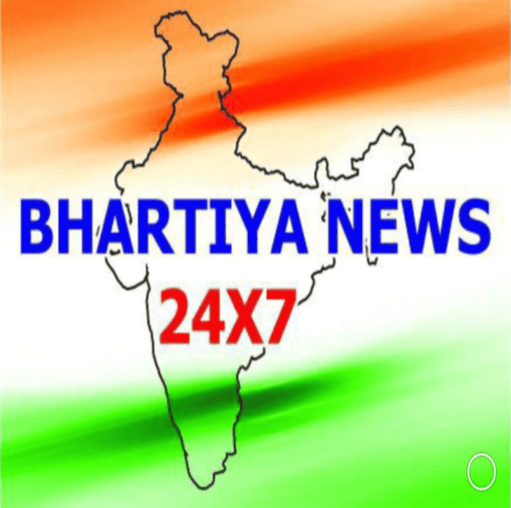
It was at bungalow number 12, located at Delhi’s Curzon Road (now K G Marg), where its resident, industrialist Lala Shri Ram, founder of the DCM conglomerate, decided to celebrate Urdu poetry through an Indo-Pak mushaira.
Those were early years post the Partition, its bloody legacy still fresh in people’s memories, when Shri Ram, whose home was a haven for some of the most notable musicians, poets and artists for decades, decided to ignite a passion among the masses for one of the threads that still tied the two nations — the common love for Urdu.
He was also keen to honour the memory of his older brother Shankar Lall ‘Shankar’ and his son, Murli Dhar ‘Shad’ — two poets from the family, who were also patrons of performing arts and Urdu poetry and had passed away.
And therefore, after consultation with leading literary figures such as famed Pakistani poet Josh Malihabadi; Shankar Prasad, the then Chief Commissioner of Delhi; Professor Mohommad Mujeeb, then V-C of Jamia Millia Islamia; and famed Hindi poet and essayist Ramdhari Singh Dinkar, Lala Shri Ram created the annual ‘Shankar-Shad mushaira’, the first edition of which took place in 1954.
For subsequent years, except when India and Pakistan were at war or diplomatically not aligned, the mushaira featured renowned names from both sides of the border.
It was the best of both worlds with Kaifi Azmi and Sahir Ludhianvi joining forces with Pakistani poets Faiz Ahmad Faiz, Malihabadi, Zehra Nigah and Ahmad Faraz among others.
For many years, actor Dilip Kumar remained its Chief Guest, and Delhi waited for his Urdu speech during the mushaira.
Story continues below this ad
Faraz could not leave without reciting Ranjish hi sahi, Azmi’s Aurat was a favourite. It was cross-border camaraderie at its best, poetry being a powerful conduit for cultural dialogue.
The symposium, now run by the younger generation of the family, has remained an enduring symbol of the rich legacy of Urdu poetry and its inclusive spirit.
This year, Delhi’s longest-running mushaira will host its 56th edition and feature poet and lyricist Javed Akhtar, doyen of Urdu poetry Waseem Barelvi, scientist and poet Gauhar Raza, Delhi-based poet Iqbal Ashhar, satirist and poet Popular Meeruthi, and Shabeena Adeeb among others on April 5 at Shankar Lall auditorium at Modern School, Barakhamba.
With India and Pakistan maintaining a diplomatic freeze, like the last few years, the mushaira will only feature Indian poets.
Story continues below this ad
Some of the older sessions of the mushaira have remained an indelible part of Delhi’s consciousness, which are still spoken about in literary circles. From Kaifi Azmi’s Makaan, with lines: Aaj phir garam hawa chalti hai/ Aaj ki raat na footpath par neend aayegi (Tonight a searingly hot breeze is blowing, Tonight on this footpath there will be no sleep) to Faiz Ahmad Faiz’s Gulo mein rang bhare which he wrote while he was imprisoned in Montgomery Central Jail for the Rawalpindi Conspiracy Case (1951) and more recently Raza’s Dharam mein lipti watan parasti/ kya kya swang rachayegi (Patriotism wrapped in religion/ what all drama will it create) in 2016 — some of the recitations remain significant moments.
But while mushairas were once the toast of Delhi, they weren’t as popular at the turn of the century, finding some revival in the last few years with help from Sanjeev Saraf of Rekhta as well as the continuity of Shankar-Shad.
Akhtar says modern entertainment has shifted preferences towards fast-paced content. “Traditional mushairas demand patience and an appreciation for complex metaphors and wordplay, which contrasts with the immediacy of contemporary digital media. With urbanisation and changing lifestyles, the culture of intellectual gatherings has also diminished, leaving fewer spaces for literary discussions,” says Akhtar in an email conversation.
He suggests that mushairas “need to evolve while preserving their artistic essence”.
Story continues below this ad
“Live-streamed mushairas on YouTube, Facebook or Instagram can make these gatherings
accessible to poetry lovers. Additionally, integrating mushairas into literary festivals, educational institutions, and cultural events can attract younger audiences. Schools and universities can play a role in introducing students to the beauty of Urdu poetry through interactive sessions and workshops. Providing translations or subtitles in multiple languages can also help make mushairas more inclusive for non-Urdu speakers,” adds Akhtar.

